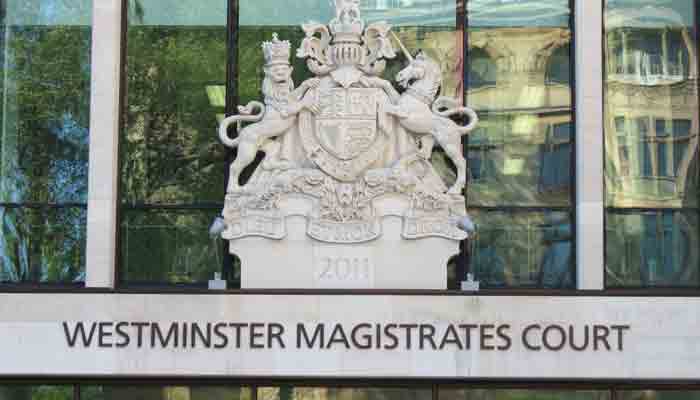Motiwala’s basic human rights will be violated in US custody, UK court told
Motiwala’s basic human rights will be violated in US custody, UK court told
LONDON: Three leading expert witnesses on conditions of American prisons and justice system have told the Westminster Magistrates’ Court that basic human rights of Pakistani national and Karachi businessman Jabir Motiwala will be violated – putting his life seriously at risk - if he was extradited to the United States to face trial on charges of drugs import, extortion and money-laundering.
Noted lawyer and extradition expert Eric Lewis and Maureen Baird, formerly a high-ranking U.S. Bureau of Prisons’ official, told extradition judge John Zani that prison conditions in the United States were not good and there was every likelihood that Jabir Motiwala will be subjected to special administrative measures if extradited to the US including solitary confinement, denial of fundamental human rights and lack of access to fair justice.
Eric Lewis appeared on first day in person before the extradition judge on second day of the trial to testify that prisoners in US jails – whether convicted or awaiting trial – suffered as a result of prison conditions and were put in inhumane jail conditions. He testified that Pakistani national Jabir Motiwala should not be extradited to the US to face trial as jail conditions will affect his mental state and health adversely.
On the third day of the trial, Maureen Baird described conditions of the US prisons as pitiful and told the court that Motiwala, if extradited, will have no communication with the outside world and his only interaction with a human will be when he’s served food or when inspections carried out.
Appearing on a video link from America for her testimony, she told the court that she had no doubt that Motiwala will be at risk of committing suicide as he will be sent to a prison where there is no 24-hours monitoring and where he will suffer further, thereby increasing risks of self-harm in solitary confinement.
Appearing on video link on Wednesday afternoon, the third witness Zachary Philip Katznelson agreed with the two previous experts. He told the court he had no doubt that US prisons were full of gang culture, violence and Motiwala will be subjected to harsh conditions given the kind of allegations leveled against him.
Earlier, on the first day of the trial, Professor Michael Kopelman testified before the court that Jabir Motiwala suffered from extreme levels of depressions, tension and anxiety and had attempted suicide on at least three occasions. Sending him to America will put him in harm’s way and he’s highly likely to take his life, the court was told.
In court papers, Motiwala has been described as a “top lieutenant” of the UN designated terrorist organization “D-company” but the Pakistani national has denied any links to the D-company and the US prosecutors have presented no evidence before the court establishing that he was linked with the D-company. The prosecution had said that the D-company operates in UAE, Pakistan and Dubai.
The Pakistani national’s defence team is led by barrister Edward Fitzgerald QC, Daniel Sternberg and Deepak Vij and Amirah Ajaz from ABV Solicitors.
The court has heard that Karachi businessman Jabir Motiwala was secretly recorded by three Federal Bureau of Investigation’s Pakistani origin secret agents in Karachi where a deal was allegedly made for import of class A drugs, extortion and money-laundering to the United States.
The 51-year-old Pakistani national was arrested in August last year from Hilton on Edgware Road by Scotland Yard’s Extradition Unit on request of the US government to face extradition to the US after an FBI probe charged him with money laundering, extortion and conspiracy to import unlawful substances such as heroine. He has denied charges.
The trial continues.
-
Security forces gun down 30 terrorists in multiple IBOs in KP: ISPR
-
MQM-P calls for new province in Sindh
-
US report validates Pakistan military edge over India: PM
-
Banned TTP poses serious threat to Pakistan security: UNSC panel
-
CM Afridi clarifies remarks on by-poll after ECP requests army deployment
-
Dubai sees 3.2m Pakistani passengers in 2025 as airport sets new milestone
-
Security forces kill 23 Indian proxy terrorists in KP's Kurram
-
Pakistan to construct island to boost oil exploration: report












